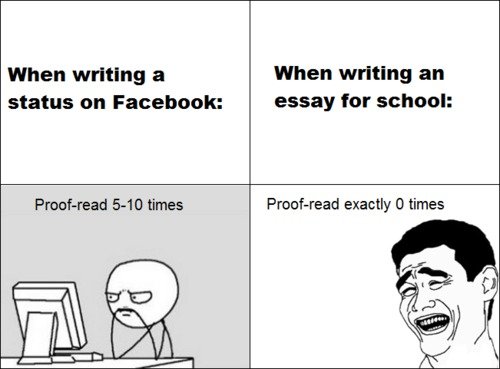Saturday
Mar152014
Social media: "should we?" to "how do we?"
 Saturday, March 15, 2014 at 06:24AM
Saturday, March 15, 2014 at 06:24AM The future is already here — it's just not very evenly distributed.- Wm Gibson
I ran across two interesting articles this week that show the wide divide among schools in how social media is regarded.
My friend Frances Jacobson Harris with coauthor Megan Murray Cusik published What's Not to 'Like"? Rethinking Restrictive Social Media Policies, School Library Journal, March 10, 2014. In clear and compelling language, they argue that social media should not be blocked in schools. It's a little frustrating that an article like this is still needed. Yet I know from the phone calls I still get from nervous tech directors asking how I've kept my job even with Facebook, Twitter, and YouTube unblocked in my district that the fight is far from over.
My friend Frances Jacobson Harris with coauthor Megan Murray Cusik published What's Not to 'Like"? Rethinking Restrictive Social Media Policies, School Library Journal, March 10, 2014. In clear and compelling language, they argue that social media should not be blocked in schools. It's a little frustrating that an article like this is still needed. Yet I know from the phone calls I still get from nervous tech directors asking how I've kept my job even with Facebook, Twitter, and YouTube unblocked in my district that the fight is far from over.
On the happier end of the social network adoption spectrum, another friend, Vicki Davis, gives concrete, positive examples of how teachers are using social media right now in their classrooms in A Guidebook for Social Media in the Classroom, Edutopia, February 27, 2014. Davis makes a powerful observation:
- There's one form of writing that can arguably get someone fired, hired or forced to retire faster than any other form of writing.
- There's one form that will most likely be read by college admissions offices and teams of student "stalkers" hired to vet students before they receive scholarships.
- There's one form that will prevent some people from running for political office and get others elected.
One form of writing is that powerful.
If you guessed social media, you're right.
Fearful adults leading schools will result in children not prepared for a society that will demand the skillful use of social media. And that's a damn shame.
Francie and Vicki - thanks for keeping the fight alive.
Francie and Vicki - thanks for keeping the fight alive.
Some of my writing on the why and how of social networking in schools:
- Connections for Learning, a SayWire White Paper on social networking tools in education, 2009.
- Filtering Fallacies Power Up column, Educational Leadership, December/January 2013
- Guidelines for Educators Using Social and Educational Networking Sites (with Jen Hegna) Library Media Connection, March/April 2010
- The Neglected Side of Intellectual Freedom, March/April 2013
- Rules for the Social Web Threshold, Summer 2007
- Why Facebook Belongs in Your School Power Up column, Educational Leadership, February 2014
Mankato School district's social media policy and guidelines are here:

Source: http://www.funnyjunk.com/funny_pictures/3202674/facebook+vs+school/









Reader Comments